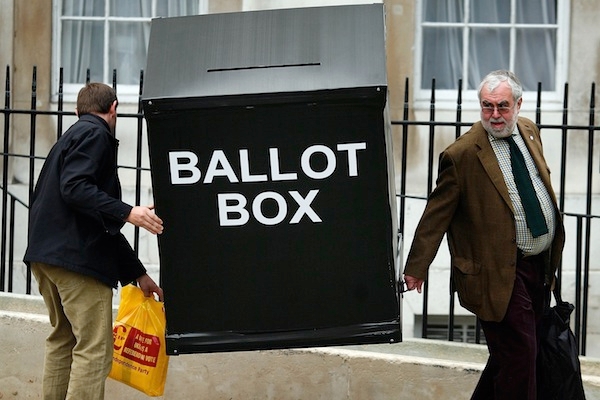It is easy to make a case for why all three main parties should do badly at the next election.
After five years of austerity, who will vote for the Tories who didn’t in 2010? And how will they stop those dissatisfied with the compromises of coalition from sloping off to Ukip?
As for Labour, why would the public want to put them back in charge just five years after booting them out? This question has special force given that the Labour leadership is so identified with that failed belief that boom and bust had been ended.
Then, there’s the Liberal Democrats—they’ve alienated their left-leaning supporters and lost their status as the protest party of British politics. Oh, and they’ve broken one of their most memorable pledges: no increase in tuition fees.
But as Steve Richard points out in The Guardian today, some combination of these parties will have to form a government after the next election. Not even Nigel Farage thinks that Ukip will be in office come 2015.
Doubts about whether a party can win can be corrosive. The Tory benches are never more truculent than when they think the best they can hope for is another five years of coalition. At which point, they start behaving in a manner that makes a Tory majority even less likely.
But I do sense a shift in the Tory ranks in recent weeks. Pretty much every Tory MP is now convinced that the economy will grow solidly, if not spectacularly, between now and 2015. They also think, and particularly after Ed Balls’ blunder on pensions, that Labour is beatable. These factors are making the Tories more disciplined than they have been in the past two years. Meanwhile, Labour appears to be in for a bought of rather public in-fighting—just read Rafael Behr’s revealing essay on Ed the unready in this week’s New Statesman.
These two things taken together could lead to the Tories beginning to close the gap on Labour in the coming months. If they do, Labour jitters could turn into a proper wobble.







Comments